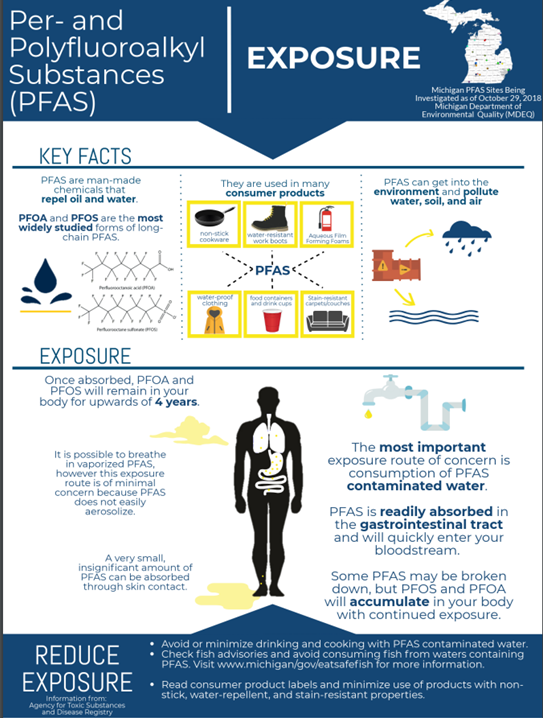

22nd August 2022 (6 Topics)
Context
According to a recent study, rainwater from many places across the globe is contaminated with “per- and polyfluoroalkyl substances,” (PFAs), which are called “forever chemicals” because of their tendency to stick around in the atmosphere, rainwater and soil for long periods of time.
About
Per- and polyfluoroalkyl substances (PFAs):
- The per-and polyfluoroalkyl substances (PFAS) are a group of chemicals used to make fluoropolymer coatings and products that resist heat, oil, stains, grease, and water.
- PFAs can migrate to the soil, water and air during their production and use. Since most PFAs do not break down, they remain in the environment for long periods of time.
- Many PFAS, including perfluorooctane sulfonic acid (PFOS) and perfluorooctanoic acid (PFOA), are a concern because they:
- do not break down in the environment,
- can move through soils and contaminate drinking water sources,
- build up (bioaccumulate) in fish and wildlife.
- PFAS are found in rivers and lakes and in many types of animals on land and in the water.
Risks to human health:
Exposure to certain levels of PFAS may lead to:
- Reproductive effects such as decreased fertility or increased high blood pressure in pregnant women.
- Developmental effects or delays in children, including low birth weight, accelerated puberty, bone variations, or behavioral changes.
- Increased risk of some cancers, including prostate, kidney, and testicular cancers.
- Reduced ability of the body’s immune system to fight infections, including reduced vaccine response.
- Interference with the body’s natural hormones.
- Increased cholesterol levels and/or risk of obesity.
How can these chemicals be removed from rainwater?
- While there is no known method that can extract and remove PFAs from the atmosphere itself, there are many effective, albeit expensive, methods to remove them from rainwater that has been collected through various rainwater harvesting methods.
- One way to do this would be to use a filtration system with activated carbon. The activated carbon will need to be removed and replaced regularly.
- Also, the old contaminated material must be destroyed.

More Articles


